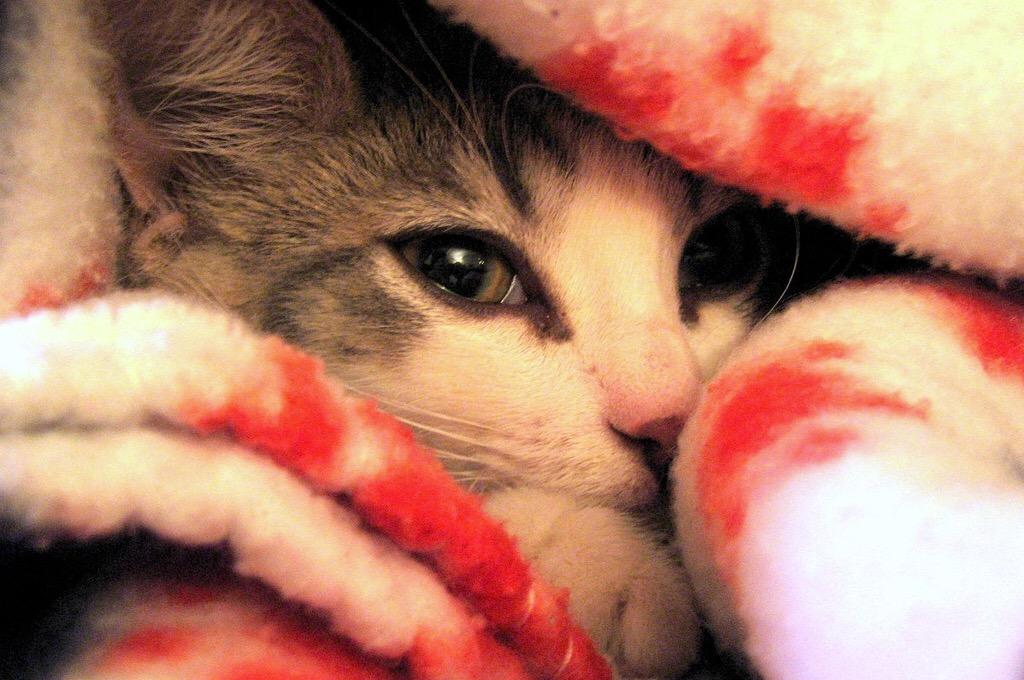S.A.D. dad: Living with both depression and children
Sam Davies sometimes just has to cry it out, particularly when the daylight hours wane. And sometimes his kid is right next to him when he does so.

Photo by: Malingering
Today I’m sobbing quietly under a blanket while my eight-year-old lies next to me, reading _New Mutants Annual 1_1. Nothing is wrong, except everything. I know I’m suffering from a self-diagnosed form of seasonal affective disorder, and at this exact moment there’s nothing I can do but let it pass.
Again, it’s not that anything specific is wrong or that there was some trigger (other than fewer daylight hours as winter approaches), but at this moment I feel incapable of joy. I don’t want to do anything because it feels pointless. I’m past the point of trying to lose myself for hours in a video game or novel and I lack the inertia to try to trick my physiology into activity through exercise. Right now, it’s as if my body needs to be sad.
And this isn’t the cathardic sadness of Inside Out where a flood of tears makes you start to feel feelings again, and realize that the joyful and tearful memories are intertwined, this is the numbing sadness where you feel it’s not even worth the sob.
I’ve been here many times before and I, fortunately, know it will pass for me. In the past without the support structures of therapy, medication, and self-knowledge, I have sunk deeper, for longer. When you feel like nothing can ever get better, your brain has a way of fullfilling that prophecy and making it harder to recover. I intellectually know that this will pass, and while it doesn’t provide me much comfort in this moment, it does help me prevent the downward spiral that makes things worse.
But… my kid is next to me. This is new. I simultaneously want to cuddle her like a stuffed animal and hide from her. I don’t want her to see me so affected. I don’t want her to see me crying. I don’t want her to ask me what’s wrong and not be able to give an answer. I don’t want her to see me weak and vulnerable, even though she probably should. Talking about it would help, both me and her. I’m no scientist, but with half of my genetics there’s a good chance that my daughter could experience similar states in her lifetime, and it would probably help her to know that this is normal and she isn’t alone. I don’t know that I’m capable for this discussion at this moment.
Fortunately (or unfortunately) for me, she doesn’t press me on it today. She must know that something’s wrong, but all she seems to want is to be with me and cuddle. Questions and talking can come later. Right now, my eight-year-old seems to have intuited exactly what I needed.
— ∮∮∮ —
About a week has passed, and I’m well on my way to climbing out of my depressive canyon. My body’s adjusting to the different levels of sunlight, and I’m making an effort to spend more time outside. I’ve also made the important effort to talk about it, especially with my wife. Saying aloud “I’m feeling sad for no reason” makes me feel less sad. That simple sentence, said to a trusted loved one, helps absolve me from feeling both sad and guilty about feeling sad at the same time.
I did not see my doctor, though I probably should have. It’d make sense to adjust my medication around the equinox, but two things prevented me. First, because of the nature of my meds, any changes would take weeks–not days–to take effect. I really need to schedule an appointment for September 2016. Second, if I go to my doctor with the sniffles, I pay a $40 copay. If I go for my ADHD, anxiety, or depression, I pay $116.87 towards my insanely high deductible. Since tweaking these medications naturally requires a few trips to my physician, it could likely cost me $300-400 out of pocket. It’s ridiculous that mental illness is treated differently than if I threw my back out, but it is, and the insurance company wins this round.
I haven’t talked to my daughter yet, though I’ve resolved that I should. I will tell her that sometimes people in our family get sad for no reason. I will tell her that this is normal, and that, even though she won’t want to, she should try and talk about it to someone. I will tell her that things will get better and that it’s OK and normal to need help. I will tell her the kinds of help that have helped me, that I’m vulnerable, and that I couldn’t have done it alone. And I will tell her how much her love helps me.
- The delightful first appearance of Lila Cheney, a mutant, planet-stealing, rock goddess. ↩
-
Recommend this
on Facebook -

Report an error
-

Subscribe to our
Weekly Digest





There are 3 reader comments. Read them.